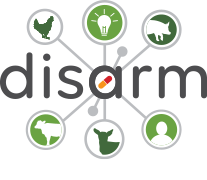305 – Decentring antibiotics – UK responses to the diseases of intensive pig production (Research paper – Woods – 2019)
Click here for resource
In Significant Impact Groups: AMU reduction strategies
Species targeted: Pigs;
Age: Young; Adult;
Summary:
It is assumed that antibiotics had a transformative effect on livestock production by making it possible to keep larger numbers of animals in smaller spaces without them succumbing to disease. This article argues that their impact has been overstated. It draws on evidence from the veterinary, farming and government literature to demonstrate the significance of other methods devised by vets, farmers etc. of reducing diseases that emerged in association with intensive production systems. These methods predated antibiotics and evolved alongside them. They understood pig diseases as highly complex interactions between pigs and their environments. Recognition of the roles played by housing, husbandry, nutrition, and pathogens in the production of pig disease suggested multiple possible points of intervention other than antibiotics. This article challenges existing claims about antibiotics role in intensive farming, and draws attention to other methods of promoting pig health, which may find renewed applications as we move towards a post-antibiotic era.
Where to find the original material: https://www.nature.com/articles/s41599-019-0246-5#article-info; https://doi.org/10.1057/s41599-019-0246-5
Country: UK
